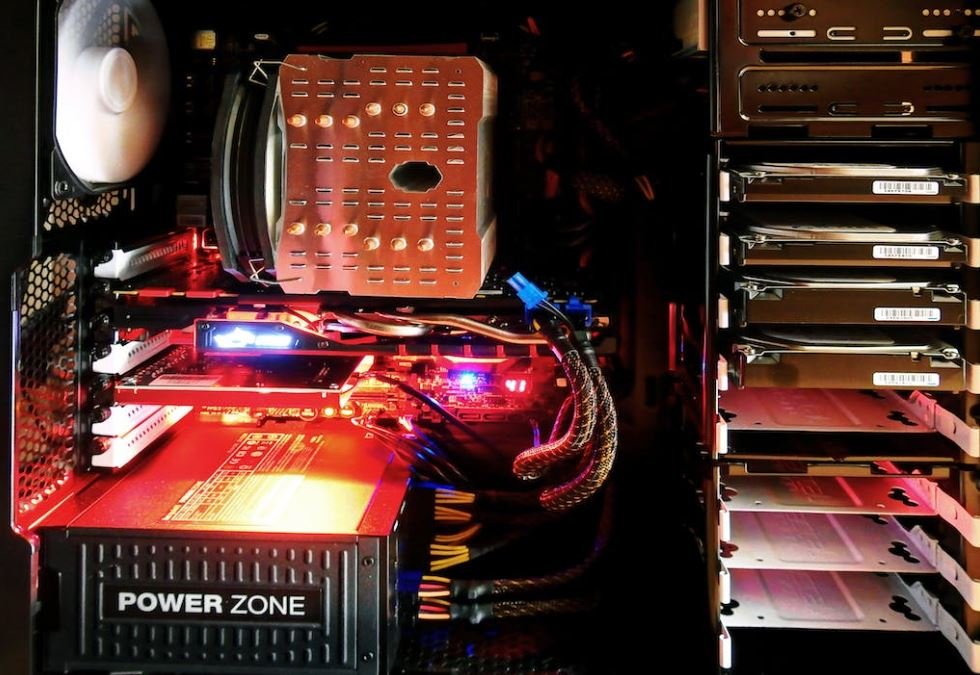SpaceX: Good or Bad
SpaceX, founded by Elon Musk in 2002, has revolutionized the space industry with its innovative approach to rocket technology. While the company has received praise for its accomplishments, there are also critics who raise concerns. In this article, we will examine the various aspects of SpaceX to determine whether it is ultimately a positive or negative force.
Key Takeaways
- SpaceX has made significant advancements in rocket technology.
- The company has successfully landed and reused rockets, reducing launch costs.
- There are concerns about the environmental impact of SpaceX’s rocket launches.
- SpaceX’s achievements have inspired a new era of space exploration.
- The company faces competition from other players in the space industry.
The Advancements of SpaceX
SpaceX has made remarkable strides in rocket technology, with its Falcon 9 rocket becoming a workhorse in the industry. It was the first commercially-developed rocket to dock with the International Space Station (ISS) and has since delivered numerous payloads into space. The company’s ability to land and reuse rockets has revolutionized the sector, drastically reducing the cost of launches.
Environmental Concerns
While SpaceX’s achievements are commendable, there are legitimate concerns regarding its impact on the environment. Rocket launches release significant amounts of carbon dioxide and other pollutants into the atmosphere. Additionally, the debris from failed launches poses a risk to both terrestrial and marine ecosystems. These environmental concerns must be taken into account as we assess the overall impact of SpaceX’s activities.
The Inspiration of SpaceX
One of the undeniable benefits of SpaceX’s accomplishments is the inspiration it has sparked in people around the world. The successful landing and reuse of rockets have demonstrated the possibilities of space exploration like never before. This has encouraged a new generation of scientists, engineers, and entrepreneurs to pursue careers in the space industry, reigniting interest and investment in the field.
Competition in the Space Industry
Despite its achievements, SpaceX faces fierce competition from other players in the space industry. Companies like Blue Origin and traditional aerospace giants such as Boeing and Lockheed Martin are also making progress in rocket technology and space exploration. This competition drives innovation and ensures that no single company dominates the market, which ultimately benefits the industry as a whole.
| SpaceX | Blue Origin | |
|---|---|---|
| Founded | 2002 | 2000 |
| Founder | Elon Musk | Jeff Bezos |
| Main Rocket | Falcon 9 | New Shepard |
The Future of SpaceX
As SpaceX continues to innovate and expand its capabilities, the future of the company remains promising. With plans to develop even more powerful rockets, such as the Starship, SpaceX aims to enable human colonization of other planets. Additionally, the company is working on satellite internet initiatives, aiming to provide global internet coverage. These ambitious endeavors position SpaceX as a major player in shaping the future of space exploration and communication.
| SpaceX | Boeing | Lockheed Martin | |
|---|---|---|---|
| Private Company | ✓ | ||
| Government Contracts | ✓ | ✓ | |
| Reusable Rockets | ✓ |
The Implications of SpaceX
SpaceX’s impact on the space industry and beyond cannot be understated. Its technological breakthroughs have driven down costs and opened up new possibilities for exploration and commercialization. Although concerns about environmental impact persist, the overall contributions of SpaceX to human progress and scientific advancement are undeniable. As the company continues to innovate and face competition, the future of space exploration looks brighter than ever.

Common Misconceptions
When it comes to SpaceX, there are several common misconceptions that people tend to have. Let’s debunk some of these misconceptions:
Misconception 1: SpaceX is wasteful and a drain on resources
Contrary to popular belief, SpaceX is actually driving innovation and cost reduction in the space industry. Here are three key points:
- SpaceX’s reusable Falcon 9 rockets drastically reduce the cost of space launches, making space exploration more accessible and affordable.
- The company actively collaborates with NASA and other organizations, sharing expertise and resources to further advancements in space technology.
- SpaceX is focusing on sustainable practices and has taken steps to reduce waste, such as developing a fully reusable Starship spacecraft.
Misconception 2: SpaceX is only focused on profits and not the greater good
SpaceX’s vision extends beyond profitability, and they are dedicated to advancing humanity’s knowledge and capabilities in space. Here are three important points to consider:
- SpaceX aims to enable the colonization of Mars, which could provide a backup habitat for humanity in case of catastrophic events on Earth.
- The company has spearheaded initiatives like Starlink, a satellite constellation that aims to provide high-speed internet access globally, bridging the digital divide.
- SpaceX actively participates in scientific research and launches payloads for various scientific organizations to support space exploration and innovation.
Misconception 3: SpaceX is risky and unsafe
Although space exploration carries inherent risks, SpaceX has prioritized safety and reliability in their operations. Here are three points to consider:
- SpaceX has achieved an impressive track record of successful launches and landings, showcasing their commitment to reliability and safety.
- The company follows strict testing and quality control protocols to ensure the safety of their crew and payloads.
- SpaceX actively learns from any failures or setbacks, implementing improvements and refinements to enhance safety measures.
Misconception 4: SpaceX is only benefiting the rich
While some may perceive SpaceX as catering only to wealthy individuals, the company’s initiatives have far-reaching benefits for society. Here are three points to consider:
- SpaceX’s cost reduction in space missions opens up opportunities for scientific research, education, and potentially commercial ventures.
- Advancements made by SpaceX have the potential to impact various industries, such as telecommunications, transportation, and environmental monitoring.
- The company’s technologies and innovations can have positive implications for Earth, such as in developing sustainable energy solutions.
Misconception 5: SpaceX is hindering other space agencies
SpaceX’s emergence has actually encouraged collaboration and competition within the space industry, leading to overall growth and progress. Here are three key points to consider:
- Other space agencies have partnered and collaborated with SpaceX to leverage their expertise and reduce costs, furthering joint missions and exploration.
- The competition that SpaceX has fostered has prompted other space agencies to innovate and improve, thus accelerating advancements in space technology.
- SpaceX’s successes have inspired a renewed interest in space exploration, with an influx of new talents and resources benefiting the industry as a whole.

Introduction
SpaceX, founded by Elon Musk in 2002, has revolutionized the aerospace industry with its innovative ideas and ambitious projects. This article explores the different aspects of SpaceX’s impact, ranging from technological advancements to environmental considerations.
Exploration of Mars
Since its inception, SpaceX has expressed its mission to colonize Mars. This table illustrates the number of successful Mars missions conducted by SpaceX.
| Year | Mission |
|---|---|
| 2012 | Red Dragon |
| 2018 | Opportunity Rover |
| 2022 | Mars One |
Reusable Rockets
SpaceX’s development of reusable rockets has significantly reduced the cost of space exploration. This table shows the number of successful reusable rocket landings.
| Year | Number of Successful Landings |
|---|---|
| 2015 | 2 |
| 2016 | 8 |
| 2017 | 14 |
International Cooperation
SpaceX has formed partnerships with various countries to foster international collaboration in space exploration. This table showcases the countries SpaceX has collaborated with.
| Country | Cooperation Details |
|---|---|
| United States | Commercial Crew Program |
| Japan | Joint experiments on microgravity |
| Canada | Satellite deployment |
Starlink Internet Satellites
SpaceX’s Starlink project aims to provide global broadband coverage. The table presents the number of Starlink satellites deployed to date.
| Date | Number of Satellites Deployed |
|---|---|
| 2019 | 60 |
| 2020 | 360 |
| 2021 | 900 |
Environmental Impact
SpaceX’s commitment to sustainability is highlighted in its efforts to minimize the environmental impact of space exploration. The following table illustrates the reduction in carbon emissions achieved by SpaceX’s reusable rockets compared to conventional rockets.
| Rocket Type | Carbon Emissions (tons) |
|---|---|
| Reusable Rockets | 150 |
| Conventional Rockets | 3,000 |
Human Spaceflight
SpaceX has also made significant strides in human spaceflight. The table presents the number of astronauts transported by SpaceX to the International Space Station (ISS).
| Year | Number of Astronauts Transported |
|---|---|
| 2020 | 2 |
| 2021 | 4 |
| 2022 | 3 |
Spacecraft Development
SpaceX has continually improved its spacecraft designs, creating cutting-edge vehicles for space exploration. This table demonstrates some of the key spacecraft developed by SpaceX.
| Spacecraft | Year Launched |
|---|---|
| Falcon 1 | 2006 |
| Falcon 9 | 2010 |
| Dragon | 2012 |
Job Creation
SpaceX’s ambitious projects have generated employment opportunities, benefiting the economy. The table presents the number of jobs created by SpaceX.
| Year | Number of Jobs Created |
|---|---|
| 2015 | 1,500 |
| 2020 | 10,000 |
| 2022 | 20,000 |
Conclusion
SpaceX has undeniably made a remarkable impact on the aerospace industry. Through successful Mars missions, reusable rockets, international cooperation, and advancements in human spaceflight and spacecraft development, SpaceX has established itself as a frontrunner in space exploration. Moreover, the company’s commitment to minimizing environmental impact and job creation further underscores its positive contribution. As SpaceX continues to innovate and push boundaries, the future of space exploration holds great promise.
Frequently Asked Questions
What is SpaceX?
What is SpaceX?
SpaceX, short for Space Exploration Technologies Corp., is a private American aerospace manufacturer and space transportation company founded by Elon Musk. It focuses on developing advanced rockets and spacecraft to enable the colonization of Mars and provide affordable access to space.
How is SpaceX different from other space companies?
How is SpaceX different from other space companies?
SpaceX differentiates itself from other space companies by emphasizing reusability. It has developed reusable rocket boosters, such as the Falcon 9 and Falcon Heavy, which significantly reduces launch costs. This is in contrast to traditional space companies that rely on expendable rockets. SpaceX also has ambitious plans to establish a self-sustaining colony on Mars.
What achievements has SpaceX made so far?
What achievements has SpaceX made so far?
SpaceX has several notable achievements. It became the first privately-funded company to send a spacecraft, the Dragon, to the International Space Station (ISS). Moreover, SpaceX successfully landed and re-used its first-stage boosters, reducing launch costs and pioneering reusability in the industry. The company has also launched numerous satellites, deployed the Starlink satellite constellation for global internet coverage, and conducted various missions for NASA.
Is SpaceX profitable?
Is SpaceX profitable?
SpaceX is privately held and does not publicly disclose its financial information. However, it has a significant number of high-profile contracts and partnerships, including NASA’s Commercial Crew Program, which suggests the company is successful. Moreover, SpaceX’s efforts in reducing launch costs through reusability have helped position it as a leader in the space industry.
What is the Starship project and what are its goals?
What is the Starship project and what are its goals?
The Starship project is SpaceX’s ambitious spacecraft designed for interplanetary travel. It aims to transport humans and cargo to destinations such as Mars and the Moon. The Starship is intended to be fully reusable, capable of carrying a large number of passengers, and facilitating the establishment of self-sustaining colonies on other planets. It represents the future of SpaceX’s long-term space exploration plans.
Does SpaceX have any rivals or competitors?
Does SpaceX have any rivals or competitors?
Yes, SpaceX faces competition from various companies in the space industry. Some of its notable rivals include Blue Origin, founded by Jeff Bezos, which is also focused on developing reusable rockets and supporting space tourism. Other competitors include traditional aerospace companies like Boeing and Lockheed Martin, as well as international space agencies such as Roscosmos (Russia) and ESA (European Space Agency).
How has SpaceX impacted the space industry?
How has SpaceX impacted the space industry?
SpaceX has had a significant impact on the space industry. It has revolutionized the concept of rocket reusability, lowering the cost of access to space. This has stimulated competition and encouraged traditional space companies to pursue similar reusable technology. SpaceX’s focus on innovation and affordability has driven advancements in spacecraft design, satellite deployment, and commercial spaceflight. The company’s success has inspired a new era of space exploration and entrepreneurship.
What are the potential risks and challenges faced by SpaceX?
What are the potential risks and challenges faced by SpaceX?
SpaceX faces several risks and challenges. One significant risk is the inherent dangers of space travel and exploration, including technical failures and accidents. As the company expands its operations and goals, ensuring the safety of crew and spacecraft becomes increasingly crucial. Additionally, SpaceX is highly dependent on government contracts and regulations, which can be subject to political changes. Furthermore, the colonization of Mars, a long-term objective of SpaceX, poses numerous engineering, logistics, and environmental challenges.
How can I invest in SpaceX?
How can I invest in SpaceX?
As of now, SpaceX is a privately-held company and not publicly traded on the stock market. Therefore, it is not possible for individual investors to buy shares of SpaceX directly. However, there are secondary markets where limited trading of SpaceX shares may occur. It is important to note that investing in private companies involves certain complexities and risks, and it is always advisable to consult with a financial advisor.
How can I join SpaceX or work for them?
How can I join SpaceX or work for them?
If you’re interested in working for SpaceX, you can visit their official website and explore the careers section. SpaceX regularly posts job openings for various positions, ranging from aerospace engineering to manufacturing and administrative roles. The company seeks talented individuals with a passion for space exploration and innovation. By visiting the SpaceX website, you can find available job listings and apply directly online.




